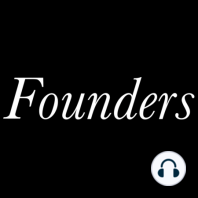64 min listen
#110 Henry Singleton (Teledyne)
FromFounders
ratings:
Length:
86 minutes
Released:
Feb 10, 2020
Format:
Podcast episode
Description
What I learned from reading Distant Force: A Memoir of the Teledyne Corporation and the Man Who Created It by Dr. George Roberts. Henry was much more than a salesman, mathematician, engineer, inventor, and chess champion. He was a student. An observer of the history of manufacturing, of the progress and growth of corporations from the days of Henry Ford, the growth of General Motors, the manner of successful corporations in growing by acquisition. [0:01]Henry reminds me of de Gaulle. He has a singleness of purpose, a tenacity that is just overpowering. He gives you absolute confidence in his ability to accomplish whatever he says he is going to do. [2:00]Henry spent time doing exactly what we are doing — learned from entrepreneurs and great people of the past. [3:45]According to Buffett, if one took the top 100 business school graduates and made a composite of their triumphs, their record would not be as good as that of Singleton, who incidentally was trained as a scientist, not an MBA. / Here is a direct quote from Buffett: The failure of business schools to study men like Singleton is a crime. / "Henry Singleton of Teledyne has the best operating and capital deployment record in American business.” —Warren Buffett [8:30]Genius is an oft-misused word, but it cannot be denied that Henry Singleton brought exceptional brilliance to the creation and development of the enterprise he undertook. . .Many of these strategies, new at the time, have now become commonplace in the business world. [12:57]My only plan is to keep coming to work each day. I like to steer the boat each day rather than plan ahead way into the future. —Henry Singleton [14:36]Within eight years of founding Teledyne had bootstrapped their startup investment of $450,000 into a company with annual sales of over $450 million. [17:24]Henry’s early faith that semiconductors would become the dominant factor in future electronics, even while this was still being debated by others in the industry. [31:15]Henry’s three great ideasRecognizing the future importance of digital semiconductors when this technology was in its infancy.Acquiring and organizing a selection of financial companies to provide a strong financial base [The idea Henry learned by reading Alfred Sloan’s of GM’s book]His innovative strategy for stock buybacks [40:30]Henry knew where he could create the most value and focused on that. Are you doing the same? [50:16]There is no speed limit: In the company’s first six years net income rose from $58,000 to $12,035,000 [52:20]There are ideas worth billions in a $30 history book. [56:10]Henry Singleton the teacher / Claude Shannon on being smart and quiet [1:06:45]By 1977 Teledyne was the largest shareholder in nine Fortune 500 companies. But Henry didn’t want control. He didn’t even want a board seat. [1:13:40]There are companies that will sell one division and buy another because today this divisions generally sports a low multiple and the one they’re buying has a high multiple. That absolutely turns me off. The whole concept is repulsive. We don’t do things like that. We look at the economic long term possibilities. —Henry Singleton [1:17:05]----“I have listened to every episode released and look forward to every episode that comes out. The only criticism I would have is that after each podcast I usually want to buy the book because I am interested so my poor wallet suffers. ” — GarethBe like Gareth. Buy a book: All the books featured on Founders Podcast
Released:
Feb 10, 2020
Format:
Podcast episode
Titles in the series (100)
#6 Sam Walton: What I learned from reading Sam Walton: Made In America by Sam Walton. by Founders
